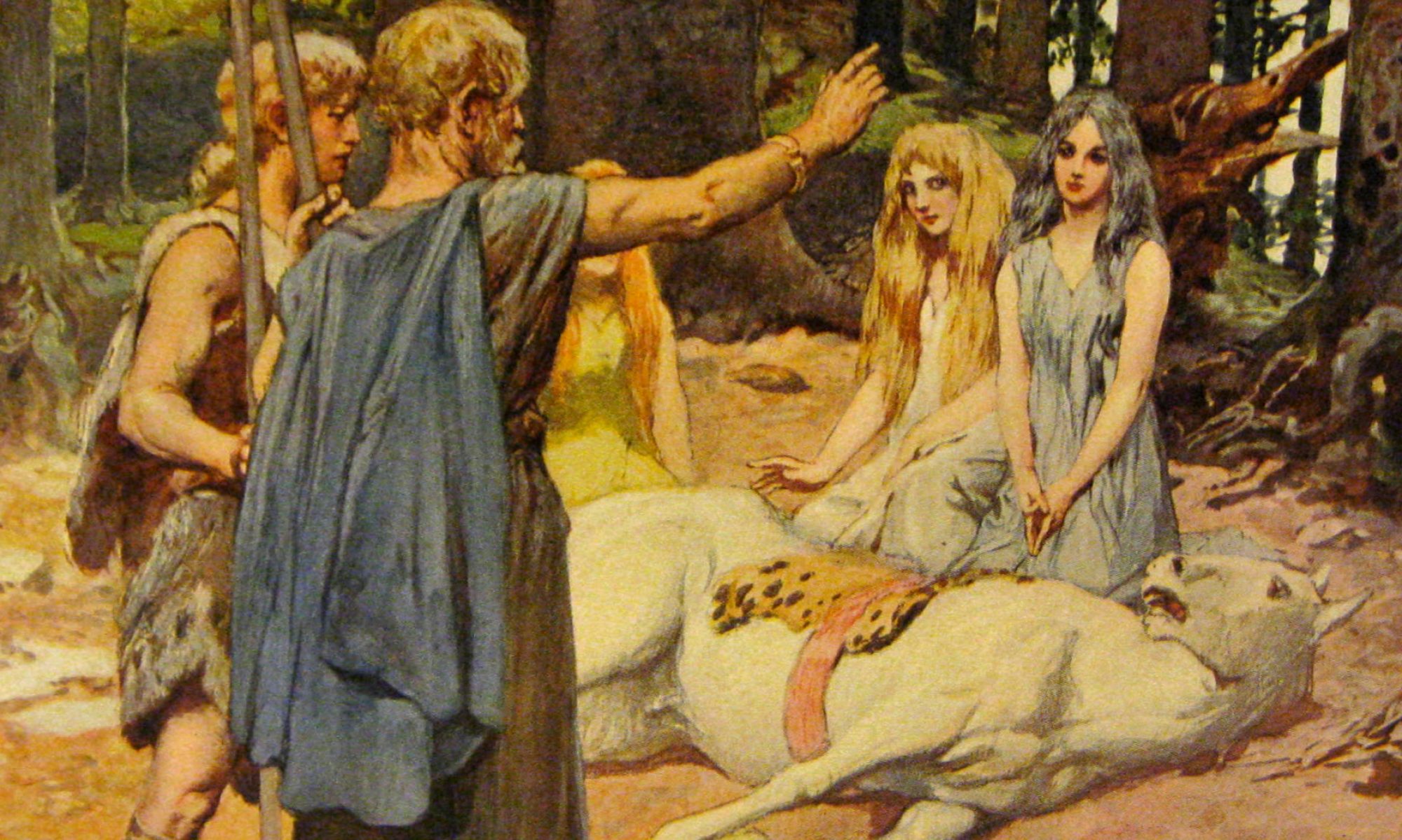16.
Álfr ok Yngvi, / Eikinskjaldi,
Álfr and Yngvi, / Eikinskjaldi,
- Álfr =alfr m (genitive alfar, plural alfir) elf
- Yngvi Yngvi m (genitive Yngva) A god that may be the same as Freyr
- Eikinskjaldi eikinn (“oaken”) + skjǫldr (“shield”), thus meaning “One with Oaken Shield” Völuspá 13
Fjalarr ok Frosti, / Finnr ok Ginnarr;
Fjalarr and Frosti, / Finnr and Ginnarr;
- Fjalarr Possibly related to Old Norse fjǫl (“plank, deal, board”), therefore meaning “The Paneller”. Another possibility is the derivation from Old Norse fela (“to hide, conceal”), thus meaning “The Spy” / Paneller. ‘block on which timber is split into panels,’ MnN Cp. fjǫI, ‘plank, board, panel,’ / Karl Millenhof suggests the meaning ‘spy,’ and derives it from fela, ‘to conceal,’ which he assumes had in addition the meaning of MnN fjela, ‘to spy.’ This lacks support.
- Frosti noun sg dat frost frost; f var veðrs, it was frosty weather; in pl, frost mikil ok kuldar, much frost and cold; frost ok snjóar, frost and snow /frost (“frost”), thus meaning “Cold One”.
- Finnr finnr (“a Finn, a Sami”), originally a medieval byname. / Lapp, i.e. magician. Cp. finnr, originally (1) ‘finder, collector, i.e. a nomad who lived on what he found or killed,’ then (2) ‘a people at the cultural stage of the collector, the Lapps. Lapps were regardedas magicians by the Scandinavians.
- Ginnarr ginna (“to dupe, deceive”), thus meaning “The Deceiver”
þat mun æ uppi, / meðan öld lifir,
known shall be / while people lives,
- þat 3sg. it
- mun 2sg. imper muna
- æ adv. ever, at any time
- uppi adv uppi up;
- meðan conj meanwhile, as long as, while, whilst
- öld ǫld f (genitive aldar, plural aldir) (poetic) men, people
- lifir verb 3rd sg pres ind act lifa to be left (er þriðjungr lifði nætr); meðan öld lifir, while the world stands;
langniðja tal / Lofars hafat.
long-fathers reckoning, / the Lofars had.
- langniðja gen. sg. langr adj. long, niðji m (genitive singular niðja, nominative plural niðjar) (poetic) a descendant
- tal noun sg acc tal talk, parley, conversation; vera (sitja) á tali við e-n, to be (sit) talking with (ek hefi verit á tali við Hrafn ok Sturlu); eiga t við e-n, to have a talk with ; taka t sitt, taka t með sér, to begin to talk together; skilja talit, to cease talking; hél
- Lofars Lofarr m (genitive Lofars) lofa (“to praise”), thus probably meaning “Praiseworthy One”. Völuspá 14
- hafat race
